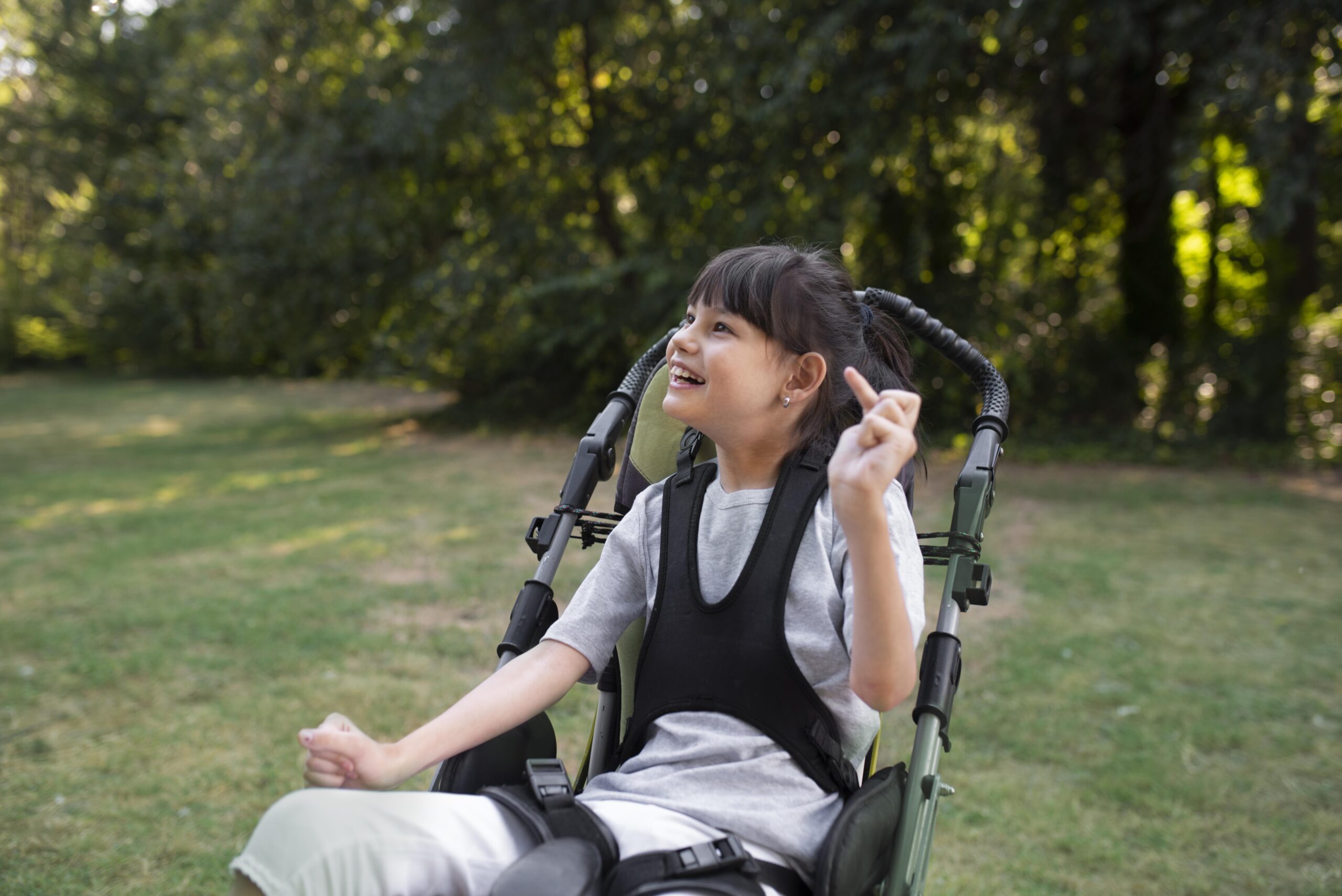Parenting Journey: Insights and Guidance for Raising Children with Cerebral Palsy.
Parenthood is often described as a journey filled with joys, challenges, and an abundance of love. It’s a path that many eagerly embark upon, anticipating the highs and lows that come with raising a child. Yet, for parents of children with cerebral palsy, this journey may come with unique hurdles to overcome. Cerebral palsy, a neurological condition affecting movement, posture, and muscle coordination, presents its own set of challenges. However, with the right support and guidance, parents can navigate parenthood with confidence and resilience, ensuring the best possible care and support for their little ones.

To embark on this journey with a child with cerebral palsy, it’s crucial to arm yourself with knowledge. Education is key, as knowledge empowers parents to understand their child’s condition better. Take the time to educate yourself about cerebral palsy: its causes, symptoms, and treatment options. By understanding your child’s diagnosis, you’ll be better equipped to advocate for their needs and make informed decisions about their care.
But parenthood doesn’t have to be navigated alone. Building a strong support network is essential. Reach out to friends, family members, support groups, and other parents of children with cerebral palsy. These individuals can offer guidance, encouragement, and emotional support, helping you feel less isolated and more empowered to face the challenges ahead.
As you embark on this journey, it’s essential to focus on your child’s abilities, not limitations. It’s easy to get caught up in the challenges of cerebral palsy, but remember to celebrate your child’s strengths and accomplishments. Focus on what they can do rather than what they can’t, and encourage them to reach their full potential in their own unique way.
As a parent, you are your child’s biggest advocate. Be proactive in seeking out the resources, services, and support they need to thrive. Whether it’s therapy services, educational accommodations, or assistive technology, don’t be afraid to speak up and fight for your child’s rights.
Parenting a child with cerebral palsy can be physically and emotionally demanding, so it’s essential to prioritize self-care. Make time for activities that recharge your batteries, whether it’s exercising, meditating, or spending time with loved ones. Taking care of yourself will help you better care for your child.
Every milestone, no matter how small, is a cause for celebration. Whether it’s taking their first steps with a walker or mastering a new communication skill, celebrate your child’s achievements and milestones with pride and joy.
Parenting a child with cerebral palsy requires flexibility and patience. Be prepared for setbacks and challenges along the way, but remember that progress is possible with time, patience, and perseverance.
Encourage your child to develop independence and self-confidence by allowing them to participate in age-appropriate activities and tasks. Offer support and encouragement as they learn to navigate the world around them, but also give them the space to explore and grow on their own.
Take advantage of community resources and services available to families of children with cerebral palsy. From early intervention programs to recreational activities and support groups, these resources can provide valuable support and assistance for you and your child.
Finally, maintain a positive outlook and attitude as you navigate parenthood with a child with cerebral palsy. Focus on the love and joy that your child brings into your life, and remember that with love, patience, and determination, you can overcome any challenge that comes your way.
In conclusion, navigating parenthood with a child with cerebral palsy may present its unique challenges, but it’s also a journey filled with love, growth, and countless moments of joy. By educating yourself, building a strong support network, advocating for your child, and prioritizing self-care, you can provide the best possible care and support for your child while finding fulfillment and joy in the journey of parenthood. Remember, you are not alone, and together, we can empower each other to navigate parenthood with strength, resilience, and love.

